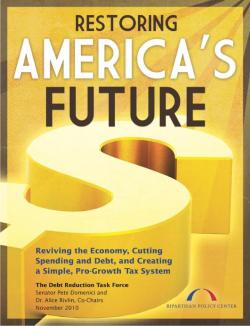Cross-posted at Forbes.com’s “On the Docket”
As The Legal Pulse documented last week, consumers at the state and municipal levels have not only convinced their elected officials to refrain from imposing new excise taxes on sugar-sweetened beverages and foods, they have also used the initiative and referendum process to expel such “sin” tariffs from their laws. Even Congress, when faced with the opportunity to fund the massive federal health reform effort with a soda sin tax, took the wiser route and left the tax out of the final law.
But as anyone who works in the policy-making world knows, bad ideas never go away in Washington; they stick around and are dutifully rehabilitated by interest groups and think tanks. Such is the case with sugar-oriented sin taxes, which a new task force report issued by The Bipartisan Policy Center recommends as one way to reduce the budget deficit and America’s collective waistline. The co-chairs of the Task Force advocated for it in a Washington Post editorial yesterday. On pages 69-71 of “Restoring America’s Future,” the Task Force urges the introduction of an excise tax of one percent per ounce on “beverages sweetened with sugar, high-fructose corn syrup, or similar sweeteners.” Such drinks purchased from a soda fountain (i.e. at a restaurant, convenience store, cafeteria, etc.) would be taxed at a higher rate.
The report justifies the tax with the same old mantra that obesity is increasing, soda consumption is increasing, government studies speculate that increasing the cost of sugary drinks would lead to a reduction in overweight, etc. It also adds the unsupported bromide that “Many have suggested taxing sweetened beverages in order to discourage their consumption and help ameliorate some of the higher medical costs associated with obesity.” Something tells us that none of those “many” are actual consumers and that most of the “many” are nanny state activists and regulators eager to use the tax code as a demonization device against popular products.
The Task Force does acknowledge that “sweetened beverages are not solely responsible for the increased number of overweight and obese people,” a reality which swallows the credibility of the soda tax idea. Such a tax discriminates against the manufacturers, bottlers, retailers, and consumers of sugar-sweetened beverages, while leaving the pocketbooks of those who produce and consume other high calorie drinks and foods untouched. It would also disproportionately impact lower-income Americans, while in addition punishing the non-obese who choose a soda or sports drink as part of their diet.
The Policy Center’s report does contain many productive ideas, such as medical malpractice reform, but a rehashed soda sin tax is not one of them.

